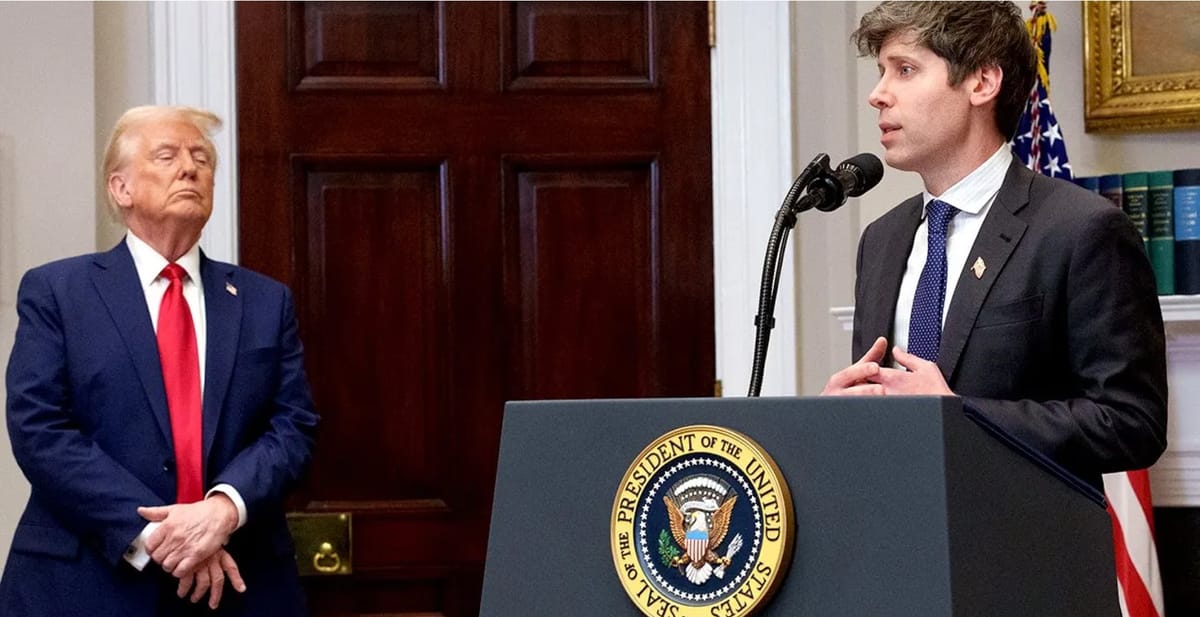Google has submitted a comprehensive policy proposal to the Trump administration's call for an "AI Action Plan," outlining a three-pronged strategy focused on energy infrastructure, balanced regulation, and international standards to maintain U.S. leadership in artificial intelligence.
In a detailed 12-page response submitted on March 13 to the National Science Foundation and Office of Science & Technology Policy, Google advocates for policy reforms to "sustain and enhance America's global AI dominance" amid growing competition from China and other nations.
Key points:
- Energy policy reform identified as the "core constraint" to expanding AI infrastructure
- Google warns against fragmented state-level regulations that could slow AI development
- The company calls for balanced export controls that protect national security without hindering U.S. business operations
"Like any multi-use technology, AI can be misused by bad actors, but it also promises to greatly improve our lives," Google states in its proposal. "For too long, AI policymaking has paid disproportionate attention to the risks, often ignoring the costs that misguided regulation can have on innovation, national competitiveness, and scientific leadership."
The response comes at a pivotal moment for U.S. AI policy following President Trump's January executive order on "Removing Barriers to American Leadership in Artificial Intelligence." Google references Vice President J.D. Vance's recent speech in Paris where he urged the need to "catch lightning in a bottle" regarding AI development.
Google identifies energy infrastructure as perhaps the most urgent issue, noting that AI datacenter power demand is projected to rise by nearly 40 GW globally from 2024 to 2026. The company warns that as AI models become more powerful, the U.S. risks falling behind if energy policies don’t keep pace. Google is calling for reforms in energy transmission and permitting to ensure that AI infrastructure, such as data centers, has the power it needs to scale. Without such investments, Google argues, AI innovation could be stifled by bottlenecks in computational resources.
Beyond infrastructure, Google is pushing for a regulatory environment that supports AI growth. The company is particularly concerned about a fragmented patchwork of state-level AI laws that could create compliance headaches for businesses. Instead, it argues for a unified federal framework that provides clarity and avoids regulatory inconsistencies that might slow AI development. Google also wants policies that protect access to data for AI training while maintaining safeguards for security and privacy.
On the government adoption front, Google urges federal agencies to lead by example in using AI. It proposes modernizing procurement processes, encouraging the use of interoperable AI systems, and ensuring that government agencies can deploy AI efficiently. The company argues that public-sector adoption of AI could not only improve efficiency but also signal to private industry that AI innovation is a national priority.
Google also highlights the international AI landscape, emphasizing that the U.S. must set the rules rather than react to foreign regulatory frameworks. The company calls for strong American leadership in setting global AI standards, particularly through organizations like the International Standards Organization. Google warns that restrictive AI regulations from other countries could put American companies at a disadvantage if the U.S. does not take a proactive stance.

While Google’s proposal focuses on economic growth and regulatory alignment, it contrasts with OpenAI’s recent AI policy response, which frames AI as a geopolitical battleground against China. OpenAI argues for a national security-first approach, advocating for federal preemption of state AI laws and export controls to counter China’s AI ambitions. Google, by contrast, leans toward a more market-driven approach, emphasizing investment, infrastructure, and regulatory consistency.
"We are in a global AI competition, and policy decisions will determine the outcome," Google concludes. "A pro-innovation approach that protects national security and ensures that everyone benefits from AI is essential to realizing AI's transformative potential and ensuring that America's lead endures."
Whether the administration embraces Google’s investment-heavy roadmap, OpenAI’s national security focus, or a blend of both remains to be seen. What is clear is that the stakes are high—how Washington responds could shape America’s AI trajectory for decades to come.


